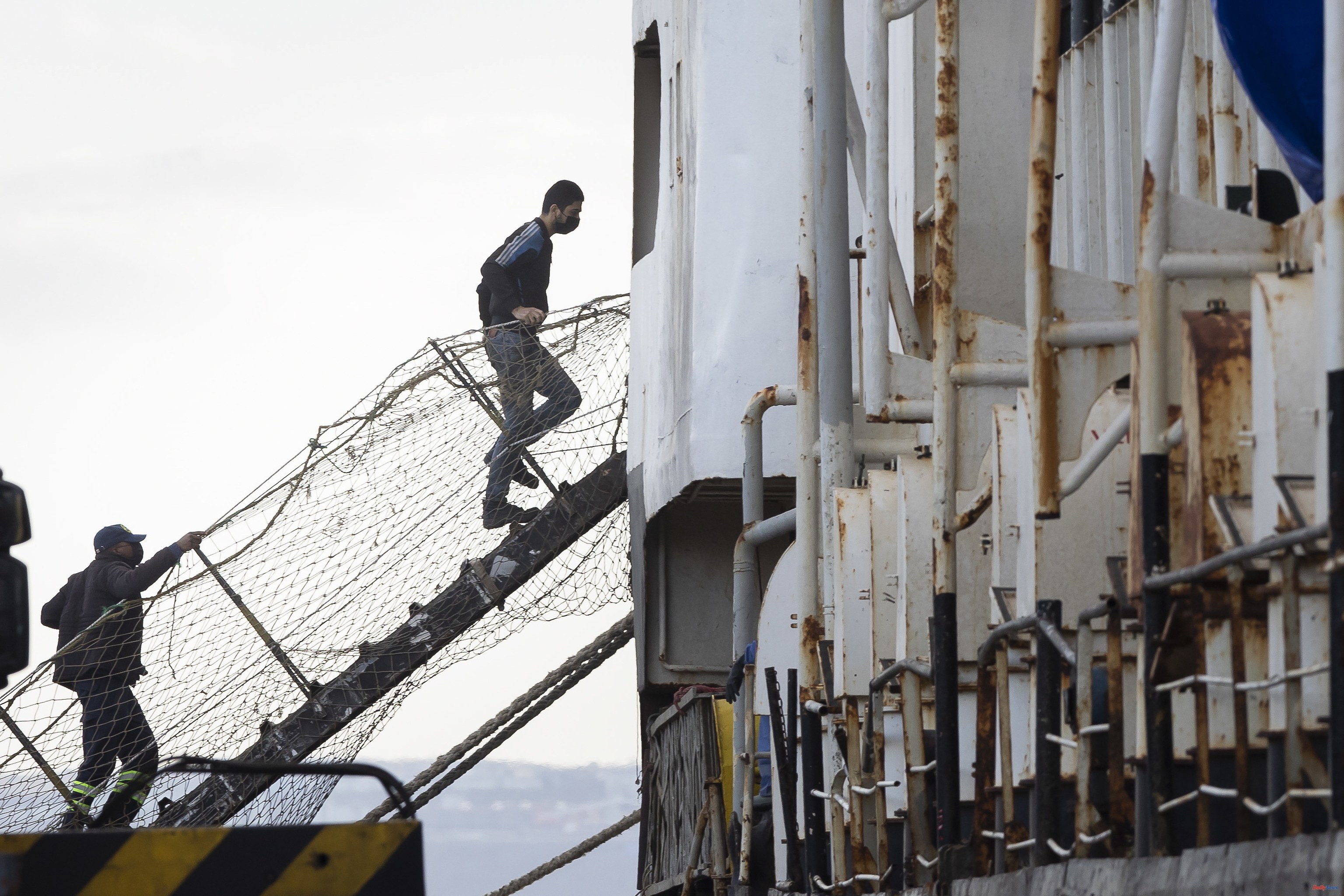The discovery of 4.5 tons of cocaine in an ancient cargo ship that was transporting cattle from Colombia to Lebanon has revived criticism from animal rights activists in the South American country towards a type of export that they repudiate. They consider that the animals suffer mistreatment during the journey and many die before arriving at the port.
"The
Padilla, a member of the Green Party, has long been fighting to end a booming trade between Colombia and nations in Africa and Asia. The seizure of the drug in the "Orion V", flying the Togolese flag, by the National Police and Surveillance of Spain, in collaboration with the DEA, has provided a new opportunity to attack the sector. The ship, intercepted last week in international waters, was taken to the port of Las Palmas de Gran Canaria and after an intense search, they found the cocaine.
"It is a mafia, these giant ships that leave Cartagena, nobody knew about this activity, it consists of putting thousands of animals, between four thousand and eleven thousand, bound for the Middle East. They are twenty-five-day trips, the animals are dying for the road and throwing them into the sea," said the senator in the Colombian magazine Semana.
The 1,750 cattle that were on board the "Orion V" belong to Frontera Vacana, one of the largest cattle exporting companies in Colombia. It has its estates in the department of Bolívar, from whose capital, Cartagena de Indias, the aforementioned ship departed. As soon as he heard the police news, he issued a statement disassociating himself from the huge cocaine stash.
"Frontera Vacana SAS has no responsibility, since it was unaware that the vessel seized in the waters of the country of Spain had narcotic substances inside," they argued. "The sale of cattle was carried out under the international figure Free on board, which means that the responsibility of Frontera Vacana ceased from the moment the cattle were loaded onto the boat."
They end up announcing legal actions against the shipping company, which they hold responsible for what happened on the voyage. They count in their favor that the authorities consider it probable that the boat left Cartagena with only the cattle and loaded the cocaine on the route. Senator Andrea Padilla, however, suspects that the cattle company may have had some relationship with drugs.
"This Orion V also left Cartagena last year, with the same number of animals and was heading the same course, but had to stop due to technical failures," Padilla argued. "In 2020 this same vessel was also allegedly related to the transport of drugs." He refers to the fact that the Spanish authorities have been following the boat ever since, suspecting that it was transporting "significant amounts of drugs."
The low number of animals that were on board the freighter is another point that draws the attention of experts, since the usual thing is to export six thousand or more animals.
Cattle trade to distant countries began when Colombia had to stop exporting meat to Venezuela due to the ruin of its economy. They had to open new markets, including that of live cattle that animalists fight, and last year, according to Fedegan (cattle breeders' federation) they already exported "205,150 head of cattle. The main destinations were Egypt, Iraq, Jordan and Lebanon." The medium-term objective is to reach one million animals and, for Frontera Vacana, to become "the largest exporter of cattle from Colombia to Asian countries."
It will not be easy for them to achieve their ambitious goals during the government of Gustavo Petro, close to animal causes and inclined to reduce the land dedicated to livestock in order to expand the agricultural frontier to feed the planet.
"I find the efforts that Fedegán makes to open markets so that national or foreign third parties take advantage of the opportunity to be in the drug-trafficking business," said José Felix Lafourie, president of the trade union. "This is a call to attention to livestock companies to be extremely careful with the drug trafficking networks that have been permeating all export sectors."
According to the criteria of The Trust Project












